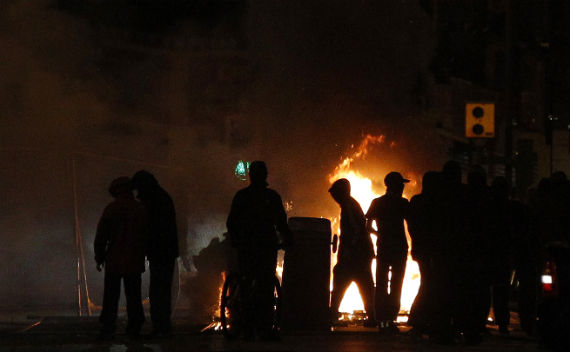Guest Post:What the London Riots Have To Do with Africa
More on:

A reader of this blog, Jim Sanders, recently sent me an interesting comment, which I have published below:
There is a commonality among the Janjaweed in Darfur, sectarian violence perpetrators in Nigeria’s Middlebelt region, Boko Haram in Nigeria’s northeast, Latin American street and drug gangs, Thailand’s ‘Red Shirts,’ and London’s rioters. In the view of Professor John Voll of Georgetown University, such groups represent a new paradigm in that they are informal, “locally mobilizable for a particular activity in a dangerous way,” minimally hierarchical, maximally socially disciplined, and largely unaffected by the threat of judicial sanction or punishment. A pulling back from the classic insurgent objective of wanting to take control of the state, to just wanting to attack and destroy it, is evident in these groups, which can be found both in industrialized and non-industrialized societies.
In Nigeria’s Plateau State, for example, those apprehended in the aftermath of grisly episodes of ‘communal’ violence reportedly showed no remorse, and had no political agenda. Similarly, yesterday’s (August 10, 2011) Financial Times’ article by Danny Kruger, “The intifada of the underclass,” includes the observation that the London rioters were “…inured to punishment and the threat of it,” and unlike young people in Egypt and Tunisia, were not trying to achieve democracy and justice.
The implications of this analysis are sobering for it suggests that conventional law-and-order approaches are unlikely to succeed, except perhaps in hardening rioters, strengthening their networks, and engendering further outbreaks. Moreover, while Kruger argues that, “We have substituted welfare payments for relationships, rights for love, and the sterile processes of the public sector for the warm morality of living communities,” it is an open question as to whether it is too late for relationships, love, and the “warm morality of living communities.” The relationships most valued are those within the gangs themselves, which have been formed by common opposition to states and societies viewed as hostile and threatening. Finally, the analysis raises a question about the effectiveness of using domestic ‘traditional’ authorities as instruments of conflict resolution, as group members, seeing them as members of an oppressive elite, may not listen to them.
More on:
 Online Store
Online Store
